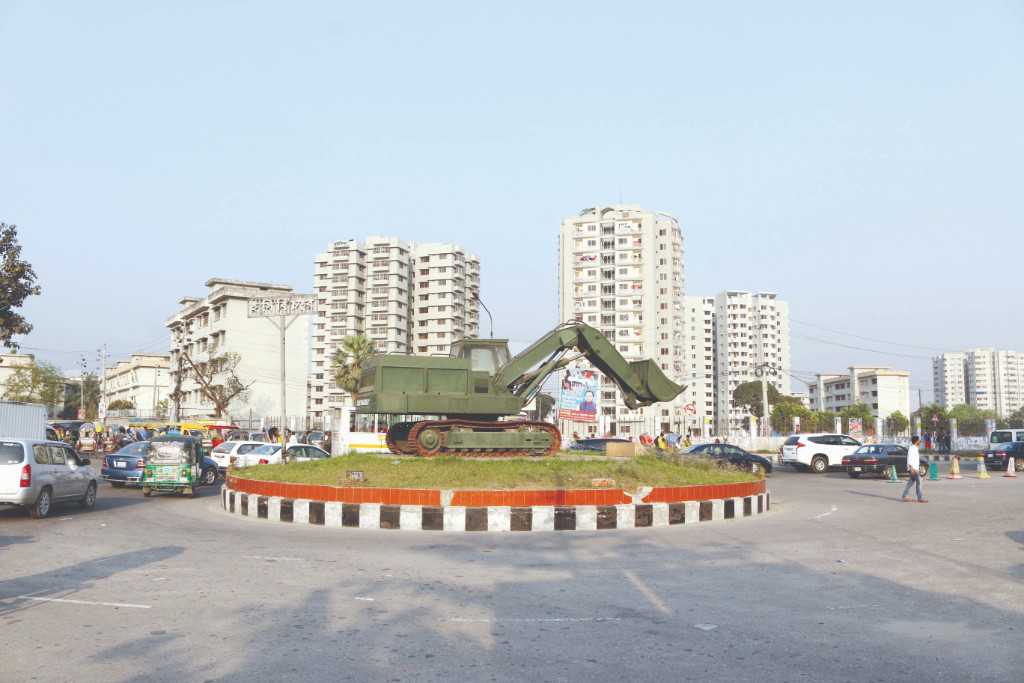'LDC graduation a chance for Bangladesh'

Image collected
However, the business people and economists, who participated in the webinar, needed signing FTA and appoint negotiator to wthhold the trade facilities following the graduation
"Graduating to a developing country is an opportunity for Bangladesh, if we are able to create an effective enabling business environment in the country," said Salman F Rahman, private sector industry and investment adviser to the prime minister, at a webinar on Saturday.
The former business leader also put focus on establishing free trade agreement (FTA) with friendly countries to avail duty free market access after graduation.
He made the remarks while addressing a webinar titled "LDC Graduation by 2024 and Readiness of Bangladesh" jointly organized by the International Business Forum of Bangladesh (IBFB) and Bangladesh Enterprise Institute (BEI) on your day.
Humayun Rashid, president of the IBFB, chaired the webinar while Farooq Sobhan, distinguished fellow at the BEI, moderated the discussion.
“The impending LDC graduation is a matter of pride for Bangladesh. If we are able to create an effective enabling business environment in the country, then graduating to a developing country is actually a chance for Bangladesh,” said Rahman.
"Graduation will probably give us a whole lot of opportunities and challenges. We need to take the full good thing about opportunities and face the challenges," he added.
However, the business people and economists, who participated in the webinar, called for signing FTA and appoint negotiator to wthhold the trade facilities following the graduation.
“We have to search for FTA to address the new challenges to be faced after graduation, '' said Mustafizur Rahman, distinguished fellow at Centre for Policy Dialogue (CPD).
On the other hand, Bangladesh has to strengthen negotiations to explore new windows of opportunity in bilateral trade, said Mustafiz.
"In addition, if we can reduce the price tag on doing business, it will be a key leverage for the business enterprise community, while the special economic zones can be a game changer," he added.
“You will see erosion of duty free market access following the graduation and we need to maintain this,” Syed Nasim Manjur, former president of Dhaka Metropolitan Chamber.
Citing the exemplory case of Vietnam’s FTA with europe, Nasim said Bangladesh had a need to lower the cost of doing business, while FTA could possibly be an option for maintaining duty free market access.
He also urged the federal government to appoint dedicated negotiators in order that Bangladesh could extend trade facilities after the graduation.
Salman F Rahman said: "We should have as many FTA as possible."
In the event of signing FTA, there is resistance from the business enterprise community because they want protection but we have to offer benefits to our counterpart in the event of bilateral trade agreement, said Rahman.
He also said that the resistance from the National Board of Revenue (NBR) in the event of customs duty will be settled as the federal government was taking steps to improve revenues from VAT, income and other sources.
"We welcome recommendations from the NGOs and private sector about the FTA," he adds.
"In addition, we ought to definitely start serious negotiations with the WTO how to increase duty free market access following the graduation," said Rahman.
“Lack of trade preferences is a key concern. After LDC graduation, tariffs on Bangladesh’s exports in major markets will rise. A lot more than 90% of Bangladesh exports to the EU could see tariffs rising from zero to about 10%,” said MA Razzaque, a consultant of the Bangladesh Enterprise Institute, in his keynote presentation.
LDC graduation could have the greatest impact on the exports of Bangladesh, which is estimated to see exports decline by 14%, said Razzaque.
Excessive reliance on government income from trade means FTA negotiations with a significant partner country may well not be possible, said the economist.
He suggested creating a post-graduation export incentive regime which will be consistent with WTO rules and enhancing export competitiveness through other means.
In March 2018, the UN Committee for Development Policy (CDP) declared the country’s eligibility for graduating from the LDCs since it has fulfilled requirements for all three standards such as gross national income per capita, human assets index, and monetary vulnerability index to graduate in developing country.
In the triennial review meeting of CPD to be held in February 2021, Bangladesh is likely to get the nod to graduate in 2024.
After 2024, Bangladesh will love a three-year period as grace and revel in duty free market access, that will end by 2027.
Source: https://www.dhakatribune.com
Tags :
Previous Story
- GDP growth data not credible, says CPD
- Defer graduation from LDC golf club to tap...
- ‘Rural economy to be under great pressure with...
- Money elites sway policies, economists tell Sanem conference
- Xiaomi, Oppo to use Qualcomm's newest mobile phone...
- Are educational institutions failing the RMG industry?
- Nation's post-graduation challenges stress specialists
- Not fund crisis, poor governance depresses stocks: CPD